Matt Gillingham
MetaCon: Unified Predictive Segments System with Trillion Concept Meta-Learning
Mar 09, 2022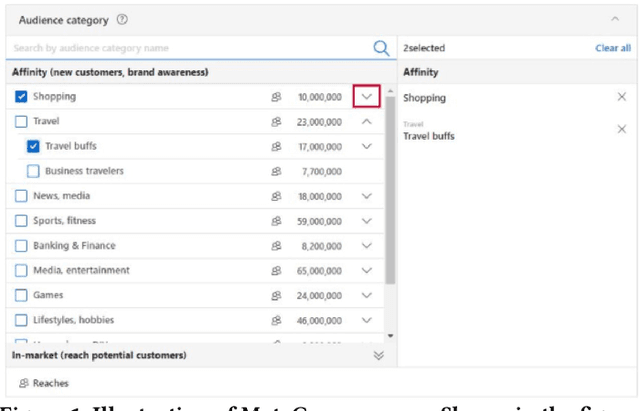

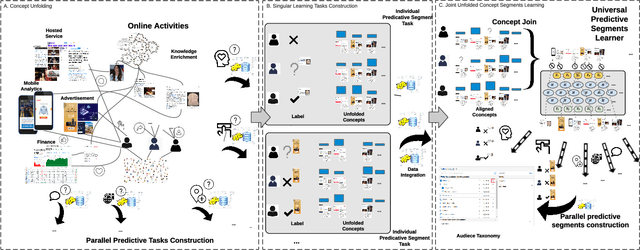

Abstract:Accurate understanding of users in terms of predicative segments play an essential role in the day to day operation of modern internet enterprises. Nevertheless, there are significant challenges that limit the quality of data, especially on long tail predictive tasks. In this work, we present MetaCon, our unified predicative segments system with scalable, trillion concepts meta learning that addresses these challenges. It builds on top of a flat concept representation that summarizes entities' heterogeneous digital footprint, jointly considers the entire spectrum of predicative tasks as a single learning task, and leverages principled meta learning approach with efficient first order meta-optimization procedure under a provable performance guarantee in order to solve the learning task. Experiments on both proprietary production datasets and public structured learning tasks demonstrate that MetaCon can lead to substantial improvements over state of the art recommendation and ranking approaches.
What's in a Name? -- Gender Classification of Names with Character Based Machine Learning Models
Feb 07, 2021
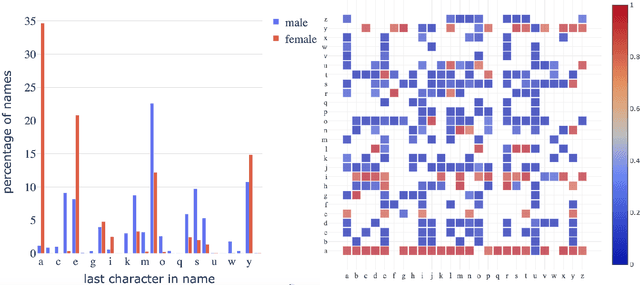
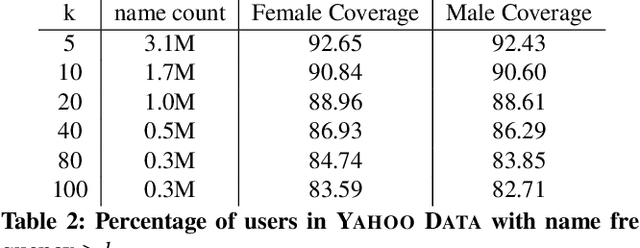
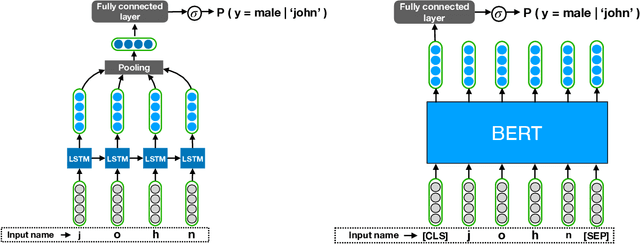
Abstract:Gender information is no longer a mandatory input when registering for an account at many leading Internet companies. However, prediction of demographic information such as gender and age remains an important task, especially in intervention of unintentional gender/age bias in recommender systems. Therefore it is necessary to infer the gender of those users who did not to provide this information during registration. We consider the problem of predicting the gender of registered users based on their declared name. By analyzing the first names of 100M+ users, we found that genders can be very effectively classified using the composition of the name strings. We propose a number of character based machine learning models, and demonstrate that our models are able to infer the gender of users with much higher accuracy than baseline models. Moreover, we show that using the last names in addition to the first names improves classification performance further.
Large-scale Gender/Age Prediction of Tumblr Users
Jan 02, 2020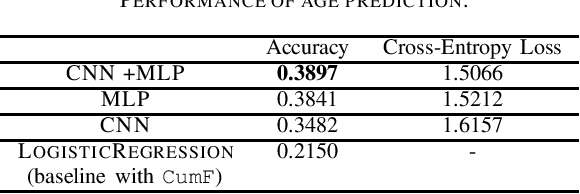



Abstract:Tumblr, as a leading content provider and social media, attracts 371 million monthly visits, 280 million blogs and 53.3 million daily posts. The popularity of Tumblr provides great opportunities for advertisers to promote their products through sponsored posts. However, it is a challenging task to target specific demographic groups for ads, since Tumblr does not require user information like gender and ages during their registration. Hence, to promote ad targeting, it is essential to predict user's demography using rich content such as posts, images and social connections. In this paper, we propose graph based and deep learning models for age and gender predictions, which take into account user activities and content features. For graph based models, we come up with two approaches, network embedding and label propagation, to generate connection features as well as directly infer user's demography. For deep learning models, we leverage convolutional neural network (CNN) and multilayer perceptron (MLP) to prediction users' age and gender. Experimental results on real Tumblr daily dataset, with hundreds of millions of active users and billions of following relations, demonstrate that our approaches significantly outperform the baseline model, by improving the accuracy relatively by 81% for age, and the AUC and accuracy by 5\% for gender.
 Add to Chrome
Add to Chrome Add to Firefox
Add to Firefox Add to Edge
Add to Edge